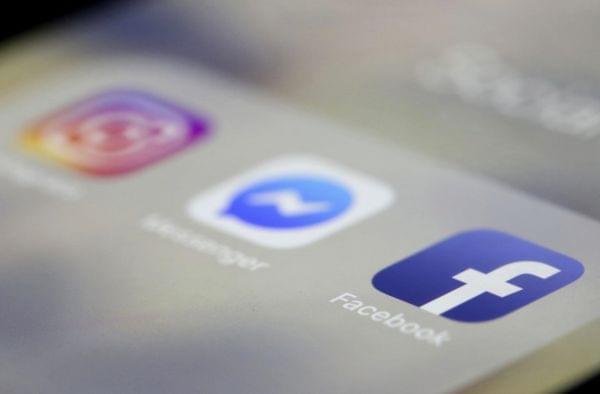Seniors And Misinformation; ‘Leaps Of Faiths’ Documentary; Veteran Caregiver Mindfulness

Jenny Kane/AP
Figuring out what’s true or false online can be tricky for everyone, but it turns out older Americans are especially vulnerable to misinformation on social media. Plus, caregivers for veterans are often under a lot of stress. We’ll talk about a new study that shows how mindfulness therapy can help. But first, the number of interfaith marriages has been increasing for years. So what does that mean when it comes to raising religious kids? Two Chicago filmmakers ask that question in a new documentary called 'Leaps Of Faiths.'
39% of couples who have gotten married in the past decade are in interfaith marriages. That’s a pretty big departure from a few generations earlier. In the sixties that number was less than 20%, according to the Pew Research Center.
Those numbers are even higher for Jewish communities. More than half of all Jewish people who have been married over the past two decades are in relationships with non-jewish partners. The question of whether you have to choose a religion when it comes to raising your kids is the subject of a new Chicago documentary, Leaps of Faiths.
We were joined by co-writers and directors David Kovacs and Steve Ordower.
"Kids, especially millennials, have such an ability to live in more than one world."
— The 21st (@21stShow) May 23, 2019
- David Kovacs, filmmaker @leapsoffaiths
Also--
Misinformation has been a problem for a long time. But, if you think back to the 2016 election, it was a time when it seemed like that problem was amplified on social media.
Since then, we’ve learned more about how misinformation spreads online, and how well equipped we are to handle it. There’s also been an increase in funding for programs that promote digital and media literacy, supported in some cases with money from tech giants like Apple and Facebook.
But many of them are designed for young people, even if a growing body of research suggests that it's our oldest citizens who are most vulnerable to false news and misinformation on the internet.
That’s the subject of a recent piece by Craig Silverman, BuzzFeed’s media editor. Lisa Gameos, works at AARP in Washington as program manager of their Learn at 50+ program. Carol Tilley is an associate professor at the University of Illinois’ School of Information Sciences.
"It's not about shaming older people or lumping them all into one group, it's thinking about how can we as a society support everyone for these challenges, and also identity who maybe deserve a little bit of extra help," says @CraigSilverman on digital media literacy.
— The 21st (@21stShow) May 23, 2019
Plus--
This year, it is estimated that more than 200,000 service members will return home. They’ll join the 18 million veterans already living in the United States.
What does care look like for those 18 million vets? According to the RAND corporation, about 5.5 million of them are helped primarily by ‘informal caregivers.’ That could mean a spouse, sibling or child. It can also mean informal caregivers are balancing careers, relationships and other responsibilities of their own while taking care of their loved ones.
Now, a new study from researchers at the University of Illinois finds that mindfulness therapy may help alleviate some of that stress for caregivers.
Kinesiology and community health professor Sandraluz Lara-Cinisomo is the study lead. Sami Anderson is one of those informal caregivers for her husband Garrett, who served in Iraq.
Champaign resident Sami Anderson cares for her husband who suffered a traumatic brain injury while in Iraq. "When I walked into his ICU room & he was in a coma, I had never even taken care of plants.
— The 21st (@21stShow) May 23, 2019
